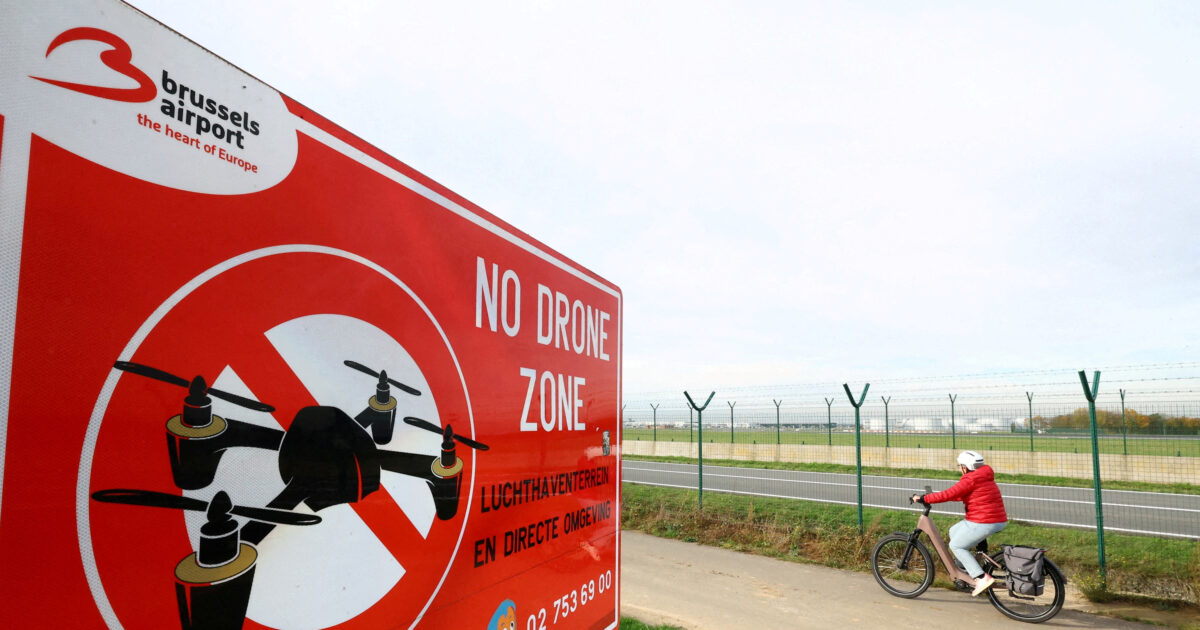The Belgium asked for her assistance Britain after a series of drone breaches, which caused temporary suspensions of operations at the country’s airports – including Brussels airport – and flights over military installations.
In response, Britain decided to send a special RAF team to Belgium, with the ability to locate and neutralize dronesthereby strengthening the protection of Belgian airspace.
The head of the British armed forces, Air Chief Marshal Sir Rich Knighton, speaking to Sky News, explained that his Belgian counterpart had called him directly earlier this week for help.
“We have agreed with the defense minister to send personnel and equipment to Belgium to help them deal with the problem they have at the moment,” he said. According to the BBC, these are probably officers of the 2nd Protection Wing (2 Force Protection Wing), a unit specialized in dealing with drones.
Suspicious drones, major turbulence and eyes on Moscow
These mysterious systems have already led to the temporary closure of Brussels-Zaventem airport, where drones were spotted near the runways on Thursday night. Around 3,000 Brussels Airlines passengers were affected, with the company citing “significant costs” due to cancellations and diversions of dozens of flights.
Additional drone flights were recorded over Belgian military bases, turning what initially appeared to be a limited incident into a national security issue. Although the origin of the drones has not been established, all eyes are on Russia.
Belgian Defense Minister Theo Franken, as well as his German counterpart Boris Pistorius, have publicly named Moscow as a prime suspect, but acknowledged that so far there is no concrete evidence. “In the beginning, drones over our military bases were seen as our own, Belgian problem. Now it is a serious threat that also touches political infrastructure in many European countries,” admitted Franken.
London: rise of ‘hybrid threats’ in Europe
London speaks of an escalation of “hybrid threats” on the European continent. “When NATO allies call, we answer,” British Defense Secretary John Healy said. “Belgium has requested urgent support to deal with enemy drones around its military bases, so I have ordered the immediate deployment of a small team of RAF specialists.
In the face of hybrid threats, our strength lies in our alliances and our shared determination to defend our critical infrastructure and airspace.”
Coordinated NATO response and fears of wider destabilization
Belgium is no exception. Denmark, Germany, Sweden and Norway have recorded similar incidents, with drones causing serious disruption to air traffic or flying over sensitive facilities. Berlin also announced that it would assist Belgium with anti-drone equipment, following an official request from Brussels.
Several European officials see behind this escalation of incidents a wider destabilization plan. Some have linked the drone flights to discussions in the EU about using frozen Russian assets to fund a major aid package to Ukraine.
Despite the accusations, the Kremlin denies any involvement. However, more serious airspace violations in Eastern Europe – with fighter jets and heavy drones – have already been attributed to Russia in recent months.
For Sir Rich Knighton, Russia today remains “the most immediate threat” to European security. As he recalls, the invasion of Ukraine revealed the cruelty of the Russian war machine, but also a web of actions that are part of the wider “hybrid conflict” – from military pressure and cyber attacks to disinformation campaigns and covert operations.
Within this environment, the deployment of the RAF team to Belgium acts as a clear signal that the UK wants to emerge as one of the main pillars of European defense against threats that are no longer confined to the fronts of Ukraine, but reach into the airfields, bases and skies of European capitals.
